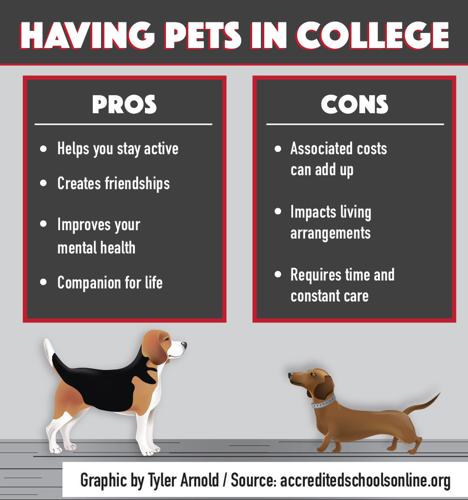Why are Humans So Obsessed With Dogs? Unveiling the Science Behind the Bond
Last Updated on September 9, 2024 by Petpalace54
Humans are obsessed with dogs because they provide social support, reduce social isolation, and improve human interactions. Females tend to have more positive attitudes towards dogs, and both humans and dogs release oxytocin while spending time together, which forms a strong social bond between them.
Canines make humans produce more trust hormones, the same response that bonds us to human infants. Dogs were domesticated, and the human-dog bond became stronger, bringing both parties happiness. Millennials are starting to view their pets as family members because having pets help people physically and psychologically.
However, today’s obsession with dogs has gone too far, and some people compensate for interpersonal relationships with their pet dogs. This article aims to explore humans’ obsession with dogs and what causes it.
Table of Contents
- 1 The Human-canine Bond
- 2 The Benefits Of Pet Ownership
- 3 Why Dogs Are Unique
- 4 The Cultural Importance Of Dogs
- 5 The Dark Side Of Pet Obsession
- 6 The Business Of Dog Ownership
- 7 Navigating The Human-dog Relationship
- 8 The Future Of The Human-dog Bond
- 9 Frequently Asked Questions On Why Are Humans So Obsessed With Dogs
- 10 Conclusion
The Human-canine Bond
Why are we obsessed with dogs? It’s a question that has puzzled many. We spend more than $70 billion on our furry friends each year, and our love for them only seems to grow. Perhaps nowhere is this more apparent than in the bond we share with our dogs. The human-canine bond is a unique one that has evolved over thousands of years. Let’s take a closer look at the science behind this bond and discover why it’s so enduring.
The Science Of Oxytocin
Oxytocin, a hormone associated with social bonding and maternal instincts, is released in both dogs and humans when we interact with each other. This hormonal response activates the pleasure centers in our brains and creates a sense of well-being, leading to a positive association with dogs.
From Domestication To Bonding
Dogs were the first domesticated animal, and we have been living with and relying on them for thousands of years. As we bred and trained them for specific purposes, a relationship developed that went beyond simply being a tool for survival. Dogs became loyal companions and trusted family members.
As dogs became domesticated, they underwent a process of genetic selection that made them better suited to living with humans. Breeders favored dogs that were friendly, obedient, and trainable, which helped to strengthen the bond between humans and dogs. This shared evolution has led to a deep level of understanding and communication between the two species.
So why are humans so obsessed with dogs? It’s likely a combination of many factors, including their loyalty, affectionate nature, and ability to improve our quality of life. The human-canine bond is a unique and enduring one, founded on mutual trust and respect. It’s no wonder why we love our furry friends so much.

Credit: www.newyorker.com
The Benefits Of Pet Ownership
Pet ownership has been found to have numerous benefits, both for physical and mental health. Dogs, in particular, have a special bond with human beings and have become an important part of many people’s lives. Research shows that pet owners live happier and healthier lives than non-pet owners.
Fostering Social Connections
Dog owners often form strong connections with their pets, which can also lead to connections with other people. Taking your dog for a walk or visiting a dog park can give you the chance to meet other dog owners who share similar interests and experiences. It’s a great conversation starter and can even lead to lifelong friendships.
Improved Mental Health
Interacting with a dog can have a positive impact on mental health. Studies have found that petting a dog can lower your blood pressure and decrease stress levels. Additionally, having a dog around can reduce feelings of loneliness and depression, and can even boost self-esteem.
Reduced Physical Health Risks
Having a dog can also provide physical health benefits. Regular exercise, such as walking your dog, can improve cardiovascular health and increase muscle strength. Additionally, studies have shown that pet owners have lower blood pressure and cholesterol levels than non-pet owners.
Overall, the benefits of pet ownership are numerous, and dogs, in particular, have a unique ability to provide love and companionship to their owners, while also improving their mental and physical health.
Why Dogs Are Unique
Dogs are fascinating creatures and one of the few animals that have managed to entrench themselves in human society. They provide our homes with warmth, affection and protection. They are loyal to a fault and have proven time and again just why they have earned the title of “man’s best friend”. There are several reasons why dogs are special, and some of them include:
Dogs Vs. Other Pets
Dogs have a unique ability to fit into just about any family setting. Whether you are young or old, single or have a family, there is always a breed of dog that can suit your lifestyle. Unlike other pets, dogs can be trained to perform specific tasks and provide emotional support for people with mental health conditions. In short, dogs offer a level of versatility that other pets cannot match.
The Evolution Of Dog Breeds
The evolution of dogs is one of the most incredible stories of animal domestication. Dogs have been bred for specific purposes, from hunting and guarding to being household companions. The result of this selective breeding has led to dogs coming in different shapes, sizes, colors, personalities and even fur types. This diversity is what makes them easy to relate to and has led to people falling in love with them even more.
The Impact Of Training And Socialization
Although all dogs are unique, it is their ability to adapt and learn that sets them apart from other animals. Through training and socialization, dogs can learn to perform tasks that would be difficult for other animals to comprehend. This level of intelligence and loyalty is what makes people become more attached to their dogs. In addition, the bond that dogs share with their owners is mutual and has been scientifically proven to release oxytocin, the love hormone, which results in a strong social bond between them.
The Cultural Importance Of Dogs
Dogs have a significant cultural importance and are considered a man’s best friend. People are obsessed with dogs because of the bond that develops between them and the emotional support that dogs provide. Studies suggest that owning a dog can help reduce social isolation and increase social support.
Historical Roles Of Dogs
Throughout history, dogs have played important roles in human societies. Ancient Egyptians, for example, regarded dogs as sacred animals and often depicted them in their artwork. Similarly, Greeks and Romans used dogs for various purposes, including hunting, herding, and guarding. In medieval times, dogs were used as trusted companions for knights on the battlefield. Even today, police and military dogs help humans in their dangerous operations.Dogs In Art, Literature, And Media
Dogs have also made their way into various forms of artwork, literature, and media. From famous paintings like “Dogs Playing Poker” to classic novels such as “Lassie Come-Home,” dogs have captured the hearts of people all over the world. In movies and television shows, dogs often play key roles and are beloved by both children and adults. It’s clear that dogs have become a significant part of our cultural world.Dogs As Family Members
Perhaps the most profound cultural significance of dogs is their place in our families. Many people consider their dogs to be members of their family, and this is reflected in the way they treat them. Dogs are often pampered with toys, treats, and even clothes. They sleep in our beds, go on family vacations, and provide emotional support during difficult times. The bond between humans and dogs is so strong that even those who don’t own dogs can appreciate their special place in our lives.In conclusion, the cultural importance of dogs is undeniable. They have played important roles throughout history, been celebrated in art, literature, and media, and become beloved members of our families. It’s no wonder that humans are so obsessed with dogs and their amazing abilities to provide us with comfort, companionship, and joy.The Dark Side Of Pet Obsession
Pet ownership has been found to improve mental well-being and reduce social isolation. Dogs, in particular, have been known to form strong bonds with their owners due to the release of oxytocin while spending time together. A dog’s loyal companionship and ability to connect people with congenial humans are some reasons why humans are so obsessed with dogs.
When Pets Replace Human Connections
One of the reasons humans are so obsessed with dogs is because they often fill a void left by a lack of human connections. Pets, particularly dogs, provide unconditional love and a sense of companionship that may not be available from human relationships. Unfortunately, this can lead to an over-reliance on pets for emotional support and social interactions, resulting in a weakening of human connections.The Problem With Extremes
While the companionship and love of a pet can be beneficial, extreme pet obsession can have negative consequences. People who become overly attached to their pets may withdraw from society, isolating themselves from human interaction. This can lead to depression and anxiety. Additionally, people may prioritize their pets above their own relationships with other humans, neglecting friends and family for the sake of their pets.Animal Welfare Issues
Another concern with pet obsession is the welfare of the animals themselves. People who are obsessed with their pets may overlook important aspects of their pet’s care, including proper nutrition and exercise. In extreme cases, pet owners may hoard multiple pets, resulting in overcrowding and lack of proper care for the animals. It’s important to remember that pets are living creatures that require attention and care, and pet obsession should not come at the expense of their well-being.Pets, particularly dogs, can bring joy and companionship to their owners. However, it’s important for humans to maintain healthy relationships with other humans and to provide proper care for their pets. When pets replace, rather than complement, human connections, the dark side of pet obsession can emerge.The Business Of Dog Ownership
Pet ownership has been linked to reduced social isolation and increased social support. In addition to their companionship, dogs allow people to connect with like-minded individuals. Walking a dog or spending time at a dog park can make people more approachable and open to conversation.
Studies have shown that a strong social bond is formed between humans and dogs, which may be attributed to the release of oxytocin during their time together.
The Pet Industry Boom
Dogs have become an integral part of our lives, and as a result, the pet industry has experienced a massive boom. The pet industry is now worth billions of dollars and comprises pet food, grooming, boarding, daycare, and veterinary services. According to the American Pet Products Association, Americans spent approximately $103.6 billion on pets in 2020, with dogs accounting for the largest share of pet ownership.Marketing And Consumer Trends
The dog industry is positioned to capitalize on this trend, as businesses are leveraging customer-centric marketing strategies to keep pet owners engaged. This often involves dog-centric content, social media advertising, and influencer marketing. Brands and companies have recognized the need for a closer connection with their customers, and as a result, have succeeded in cultivating a strong customer-centric trend, creating a significant consumer base. Both pet owners and their furry friends are enjoying personalized products, foods, and services.The Ethics Of Dog Ownership As A Commodity
As the pet industry continues to grow, concerns have been raised about the ethics of dog ownership as a commodity. Dogs are not only seen as companions but also as revenue-generating entities. Breeders and pet stores are often viewed as commodifying animals for their own economic gain, disregarding the well-being of the dogs in their care. Laws and regulations have been put in place to regulate the sale of dogs to ensure the well-being of the animals and prevent them from being treated as a commodity.In conclusion, while the business of dog ownership has been booming in recent years, it is essential to remember that dogs are living beings, not just commodities. The industry should be operated with the interest of the dogs and their well-being in mind.Pet ownership has been associated with lower social isolation and increased social support, making it easier for pet owners to connect with congenial humans. Besides pets’ companionship, people are more likely to approach and talk to those who are walking a dog or at the dog park.
Studies demonstrate that both dogs and humans release oxytocin while spending time together, which is correlated with the formation of a strong social bond.
Navigating the Human-Dog Relationship:Dogs are more than just pets. They are our loyal companions, fierce protectors, and with their wagging tails, they bring joy to our lives. Why are humans so obsessed with dogs? Many scientific studies suggest that having a furry friend can improve our mood, reduce stress levels, and even lower blood pressure. However, if you want to have a healthy and fruitful relationship with your dog, it’s essential to understand some key factors.Understanding Your Dog’s Needs:Dogs have different needs than humans. They need exercise, food, water, and a safe place to sleep. They also require proper socialization, training, and attention to live a happy life. Understanding your dog’s behavior and learning to communicate with them is crucial. Dogs communicate through body language, vocalizations, and other ways. By understanding what your dog is saying, you can better care for them.Balancing Affection and Discipline:Dogs crave affection, but they also need discipline. It’s crucial to find the right balance between the two. Too much affection without discipline can lead to behavioral problems like anxiety, aggression, and excessive barking. On the other hand, too much discipline without affection can lead to fear, uncertainty, and a weak bond. Thus, it’s important to provide your dog with the right balance of love and discipline they need to thrive.Tips for Healthy Relationships:A healthy relationship with your dog does not happen overnight. It requires patience, time, and energy. Here are some tips that can help:– Exercise your dog regularly, but also pay attention to their limitations. – Provide your dog with a balanced diet and plenty of fresh water. – Regular veterinary check-ups can ensure your furry friend’s overall health. – Provide your dog with mental stimulation, such as toys, puzzles, and training sessions. – Learn to speak your dog’s language and be attentive to their needs and behavior.In conclusion, having a dog can be a great thing, but it’s essential to understand the responsibilities that come with it. Learning how to navigate the human-dog relationship can lead to a fulfilling, happy, and healthy bond between you and your furry friend.
Credit: www.dailymail.co.uk
The Future Of The Human-dog Bond
Humans are obsessed with dogs because pet ownership is associated with increased social support and reduced social isolation. Studies have found that dogs and humans release oxytocin while spending time together, which helps form a strong social bond. Additionally, the stronger bond between humans and dogs can bring both parties more happiness and serotonin.
In recent years, the bond between humans and dogs has become more powerful than ever before. Many people have embraced dogs as valued members of their families, and this bond between the two species has been strengthened by the advances in technology, new research frontiers, and cultural shifts in pet ownership.The Role Of Technology
Technology has played a significant role in strengthening the human-dog bond. With the rise of social media platforms like Facebook, Instagram, and TikTok, dog videos and memes have become incredibly popular, showcasing the bond people have with their furry friends.Advancements in wearable technology have also benefited this bond. Devices like smart collars and cameras allow pet owners to stay connected with their dogs even when they’re away from home. People can use these devices to track their pets’ movements, monitor their sleeping patterns, and communicate with them. These devices have made it easier for owners to take care of their pets and strengthen their bond.New Research Frontiers
New research has uncovered some exciting findings about the human-dog bond. Studies have shown that dogs have the ability to understand humans at a level that was once thought impossible. Some research has suggested that dogs can read human emotions and understand human facial expressions. This ability has allowed them to recognize and respond to their owners’ needs, further strengthening the bond between humans and dogs.Moreover, the release of Oxytocin hormone, also known as the love hormone, creates a strong social bond. Both humans and dogs get this hormone released while spending time together. This hormone strengthens the bond between them two and assists feelings of trust, relaxation & contentment.Cultural Shifts In Pet Ownership
Another significant factor that has contributed to the bond between humans and dogs is the cultural shift in pet ownership. As people have become more aware of the benefits of owning a pet, more and more families have welcomed dogs into their homes.Pets provide companionship and emotional support, which can be especially valuable for people who live alone or have limited social networks. Owning a dog has been linked to lower rates of anxiety, depression, and loneliness. As a result, people have become more invested in the care and well-being of their pets, leading to a stronger bond between humans and dogs.In conclusion, it’s evident that the bond between humans and dogs will continue to strengthen in the future. Advancements in technology, new research, and cultural shifts in pet ownership will play a vital role in this process. The bond between humans and dogs is a beautiful thing, and it’s one that brings joy and happiness to millions of people around the world.
Credit: www.dailymail.co.uk
Frequently Asked Questions On Why Are Humans So Obsessed With Dogs
Why People Are So Obsessed With Dogs?
Pet ownership has been associated with less social isolation and increased social support. Dogs have a natural ability to form strong social bonds with humans, as both dogs and humans release oxytocin while spending time together. This hormonal response is correlated with the formation of a strong social bond.
Additionally, dogs make it easier for people to connect with others in social situations, as people are more likely to approach someone who is walking a dog or at a dog park. The human-canine bond has become stronger over time, bringing both parties more happiness.
Why Do Humans Get So Attached To Dogs?
Humans get attached to dogs because it has been found that pet ownership reduces social isolation and increases social support. Spending time with dogs leads to the production of oxytocin, which in turn helps in building a strong social bond.
Studies have shown that both dogs and humans release oxytocin while spending time together. Dogs also make it easier to connect with like-minded people and make humans produce more “trust hormone. ” The human-canine bond also became stronger over time as dogs were domesticated.
Why Are Humans So Bonded To Dogs?
Humans bond with dogs for various reasons. The relationship with dogs provides social support and eases social isolation. Dogs make it easier for people to connect with others. When dogs stare into their owner’s eyes, it activates a hormonal response that builds a strong social bond.
The domestication of dogs and the relationship between dogs and humans bring happiness to both parties.
Why Do Humans Like Dogs So Much?
People like dogs because they offer companionship and make it easier to connect with others. Pet ownership is associated with lower levels of social isolation and higher social support. Mindful interaction with dogs releases oxytocin which strengthens social bonds. Dogs also trigger the release of the “trust hormone” serotonin which creates a happy feeling for both the dog and the owner.
Domestication has brought humans and dogs closer, creating a stronger bond which brings happiness to both parties.
Conclusion
Humans have a deep-rooted bond with dogs that goes beyond being just a pet. Research has shown that the companionship of dogs can help reduce social isolation and increase social support, making it easier for individuals to connect with others.
The human-canine bond is also strengthened through the release of oxytocin, the hormone associated with bonding, when humans spend time with dogs. It’s no wonder that people have become so obsessed with these loyal and loving creatures. The relationship between humans and dogs is a special and unique one that brings joy, comfort, and companionship to many.




